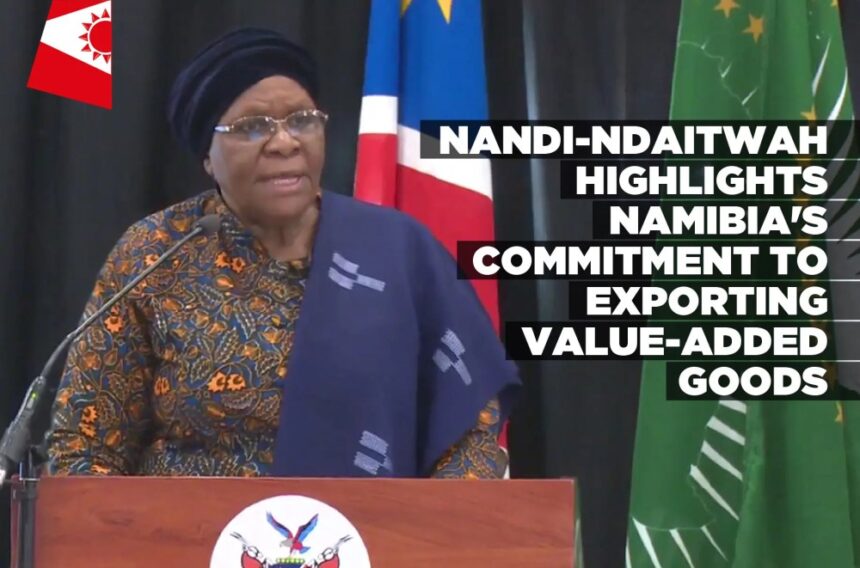Staff Reporter
NAMIBIA is fully committed to transitioning from being an exporter of raw materials to exporting value-added goods as a means to address the country’s main economic challenges, such as the high unemployment rate.
This commitment was once again emphasized by Dr. Netumbo Nandi-Ndaitwah, the Deputy Prime Minister and Minister of International Relations and Cooperation, during the Ninth Session of the Heads of Mission Conference, taking place from October 30 to November 4 in Windhoek. The conference is being attended by various representatives from the three branches of the government, former Namibian Heads of Mission, members of the Diplomatic Corps, Namibian Honorary Consuls, and senior government officials.
Dr. Nandi-Ndaitwah explained that Namibia has been highly vulnerable to external shocks, prompting the country to overhaul its extractive sector, upon which it heavily depends. The sector, she explained, has been primarily focused on exporting raw materials, resulting in low export prices for these materials and high import costs for finished goods. She said that this vulnerability left the country exposed to external economic shocks.
“This is where your work as our representatives abroad becomes even more important in terms of attracting much-needed Foreign Direct Investment in order to move away from the exporter of raw materials to exporting value added goods, thereby creating high paying jobs for our youth,” she advised the conference attendees.
She emphasized the significance of this decision by pointing out that major global powers are actively competing for access and control of critical raw materials. This competition, she said, is reshaping the world and embroiling Africa, a continent rich in these resources, in a complex geopolitical rivalry. Dr. Nandi-Ndaitwah further elaborated that this power struggle has triggered two significant geopolitical shifts, further contributing to global instability.
According to her, the first shift is from trade liberalism to trade protectionism. She, therefore, called on the conference attendees to seek ways for Namibia to navigate the increasingly competitive world to maximize benefits for the development of the country without undermining national security and stability.
The second transformation, according to her, involves a shift from multilateralism to unilateralism. She clarified that the major global powers in question are adopting unilateral policies with the goal of enhancing their influence, even if it comes at the cost of others and the international system that has historically upheld peace.
“We must remain committed and resolute in our solemn belief that multilateralism is the only effective tool to ensure peaceful co-existence in this world characterized by uncertainties. It is only through multilateralism that the concerns and the interests of the Global South can be taken into consideration by the Global North. We, therefore, need to discuss what we must do as a country to contribute to the effectiveness of the multilateral system,” she said.



Leave a Reply